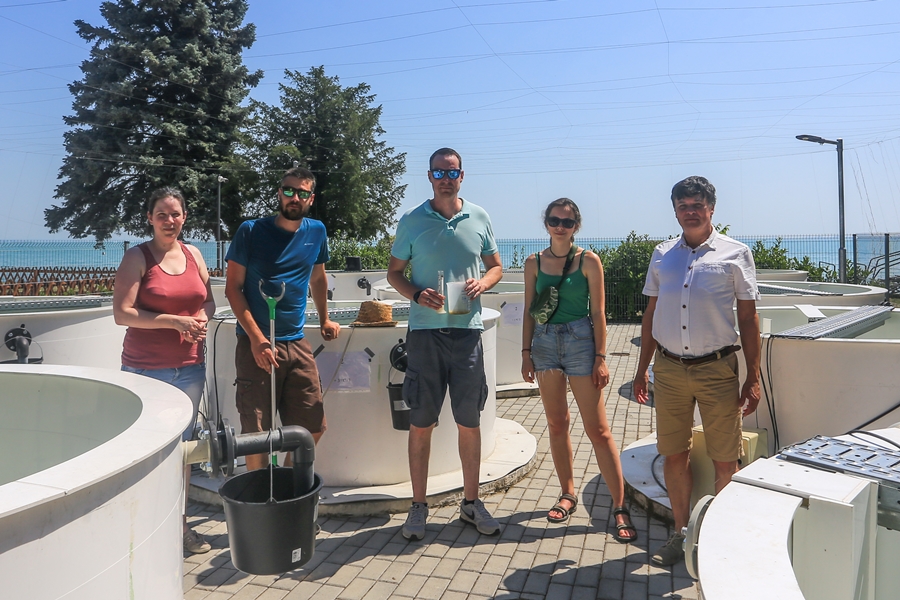Leader of the research group
Group members
The task of the Research Group is to investigate and monitor the biomass and composition, spatial heterogeneity, and seasonal dynamics of the zooplankton community inhabiting Lake Balaton. Zooplankton refers to the animal component of the planktonic community in aquatic ecosystems, which mediates nutrients and energy between lower (algae, bacteria) and higher trophic levels (e.g., fish) of the food chain. It serves as the basic food source for all juvenile fish in Lake Balaton, but several fish species also consume it in their adult stages. Through filter feeding, zooplankton can control the quantity of floating algae, thus exerting an important influence on water quality.
The Research Group also operates the mesocosm system of BLKI, consisting of 12 outdoor tanks (mesocosm: an experimental system that examines the natural environment under controlled conditions). In these five cubic meter tanks, water temperature, nutrient levels, water flow rate, incident light intensity, and other factors depending on the objective of the experiments can be regulated. Sensors installed in the tanks continuously measure the most important physical parameters in the water (e.g., incoming light, water temperature, pH, dissolved oxygen, etc.). The mesocosm tanks can be filled either with unfiltered water from Lake Balaton (pumped in directly from the lake) or with lake water filtered in three stages (gravel-, sand-, and UV-filtration). With this system, researchers can investigate/model ecological phenomena under controlled conditions, such as the impact of global climate change on aquatic communities or the interactions of environmental factors promoting algal blooms.



